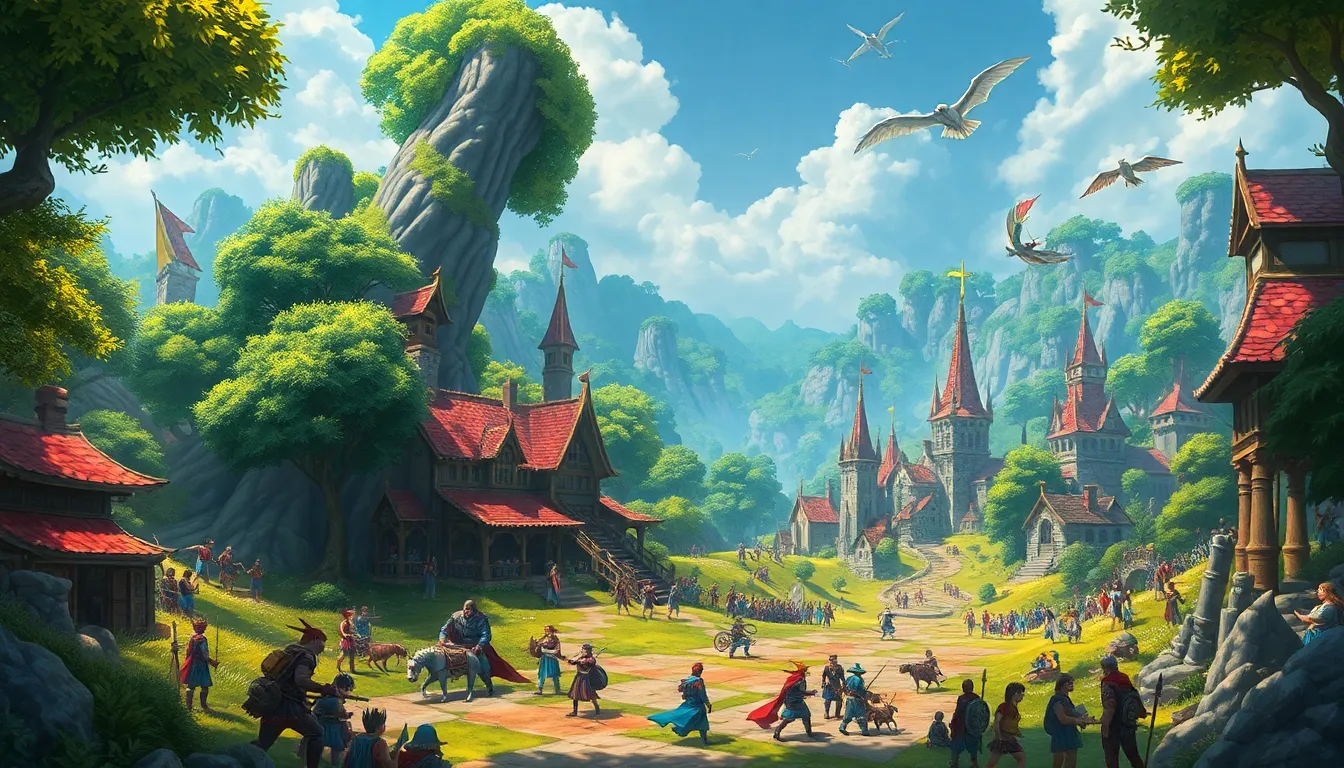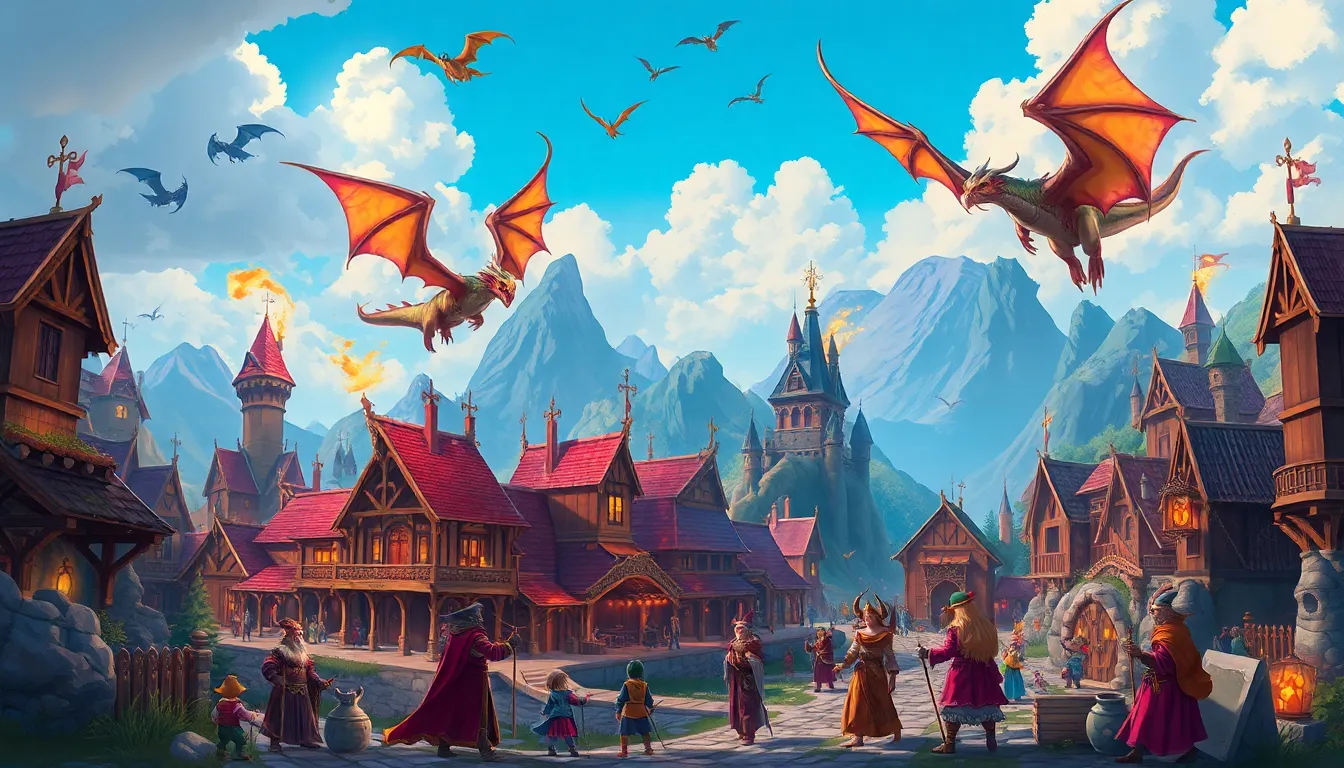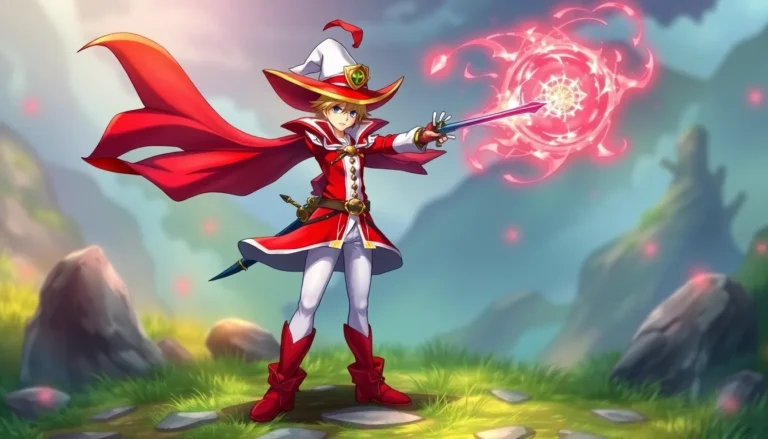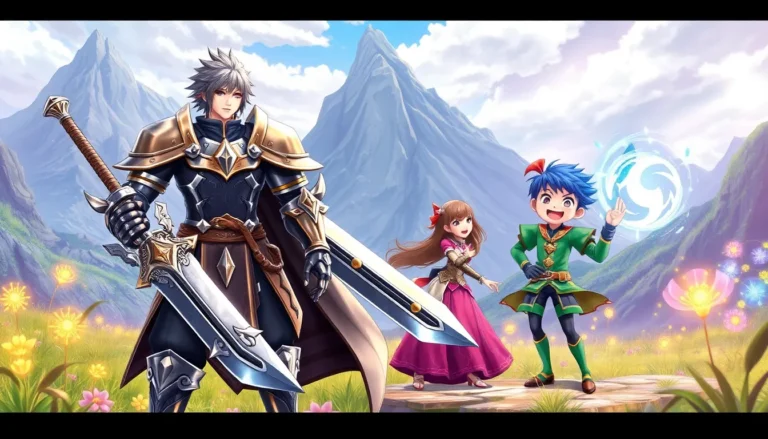In a world filled with dragons, wizards, and the occasional overzealous goblin, RuneScape isn’t just a game—it’s a phenomenon. For over two decades, players have immersed themselves in its vast landscapes, honing skills and battling foes while juggling real-life responsibilities like laundry and socializing (who needs that?). But what really makes RuneScape tick?
This analysis dives deep into the mechanics, strategies, and community dynamics that keep adventurers logging in day after day. From the thrill of leveling up to the agony of losing a hard-earned item, every aspect of the game offers a treasure trove of insights. So grab your sword, put on your best armor, and prepare to uncover the secrets behind this enduring classic. Who knows? You might just find the key to leveling up your own gameplay.
Table of Contents
ToggleOverview of Runescape
RuneScape stands out as a major player in the MMORPG genre, attracting millions since its launch in 2001. The game features a vast, continuous world where players can engage in a variety of activities, including questing, crafting, and combat. Rich lore surrounds every aspect, immersing players in a fantasy realm inhabited by magic, mythical creatures, and epic challenges.
The gameplay emphasizes skill development across numerous disciplines. Players can improve combat skills like attack and defense, focusing on mastery in different weapon types. Furthermore, skills such as fishing or crafting enable personalization and contribute to the economy within the game.
Community interaction plays a vital role in the RuneScape experience. Players form clans, trade items, and collaborate on quests. Engagement in community events, from holiday activities to player-driven contests, fosters camaraderie and social connection.
Balancing player dynamics adds to the excitement of RuneScape. The risk of losing valuable items during player-versus-player encounters heightens competitiveness, while rewards inspire ongoing participation. Mechanics allow for both casual play and intensive grinding, catering to different play styles.
Updates and expansions continually introduce new content, keeping the gameplay fresh. The dedication of the developers to address player feedback ensures the game evolves alongside its community. Events like seasonal updates and new questlines maintain interest and intrigue.
Delving into the depths of RuneScape unveils intricate strategies and robust systems. Players who familiarize themselves with the lore, mechanics, and community dynamics unlock a richer gaming experience. Understanding these aspects enhances enjoyment, making survival and mastery all the more rewarding.
Key Features of Runescape

RuneScape boasts numerous features that contribute to its long-lasting popularity. Engaging gameplay mechanics and distinctive graphics enhance the player experience.
Gameplay Mechanics
Skill development occurs across a wide range of activities. Players excel in combat, crafting, and resource gathering, all essential for building an impressive character. Dynamic quests introduce varied challenges, encouraging exploration and strategic decision-making. Additionally, a player-versus-player combat system adds excitement, where the risk of item loss intensifies competition. The game’s economic system enables trading and bartering, giving players opportunities to enhance their resources and skills. Community events regularly showcase talent and collaboration, keeping engagement levels high among players.
Graphics and Design
RuneScape presents a visually immersive world, captivating players with its detailed environments. Vivid colors and elaborate character designs enhance the fantasy setting, making exploration a delight. The modern updates include graphic enhancements that make the game visually appealing while retaining its classic charm. Atmospheric music complements the visuals, contributing to a rich gaming experience. User interface elements prioritize usability, enabling seamless navigation through various menus and features. Overall, graphics and design create a cohesive and inviting world where players easily immerse themselves.
Economic Analysis of Runescape
RuneScape features a complex economic system shaped by player interaction. This system thrives on resource gathering, crafting, and trading, forming the backbone of in-game transactions.
In-Game Economy
The in-game economy relies on various skills. Each skill contributes to resource production, which players use for crafting or selling. Supply and demand influence market dynamics, as players seek to acquire items for quests or personal achievements. Unique items often command higher prices due to their rarity. Regular updates introduce new items, impacting existing market values and prompting shifts in player interests.
Trading and Market Trends
Trading remains a central activity within RuneScape’s economy. Players engage in bartering and item exchange, leading to fluctuating market trends. Online databases and community forums track these trends, offering valuable insights into popular items and pricing strategies. Players adapt to market fluctuations, helping them maximize profits or minimize losses. Seasonal events and updates can create temporary spikes in demand, affecting prices. Understanding these trends allows players to enhance their trading strategies, fostering a deeper connection to the game’s economic landscape.
Community Dynamics
Community interaction drives player engagement in RuneScape. Players frequently collaborate to complete quests and trade items, fostering connections that enhance the gaming experience.
Player Interaction
Players often engage in lively discussions in-game chat and on forums. Friendships form organically through shared experiences, quests, and trades. Competitive play thrives, with events encouraging friendly rivalries and increasing player involvement. These interactions create a vibrant atmosphere, enriching social dynamics among participants. Community-driven initiatives, such as player-organized events, deepen bonds and promote continuous engagement. Resources like guides and tutorials further facilitate collaboration, influencing gameplay strategies and enhancing collective knowledge.
Guilds and Clans
Clans specialize in uniting players with common interests and goals. Membership in a clan offers access to exclusive events, clan chat, and coordinated activities, enhancing both social interaction and gameplay. Recruitment often occurs within the game and various online platforms such as social media. Clans contribute to the game’s economy, encouraging resource sharing and cooperative gameplay. The sense of belonging fosters loyalty and commitment, leading to long-term player retention. Clans also often participate in clan wars and tournaments, adding a competitive edge. Overall, these groups transform individual experiences into collective adventures, increasing the game’s depth and enjoyment.
Impact of Updates and Changes
Updates and changes significantly influence RuneScape’s gameplay and community. Regular content additions ensure freshness and responsiveness to player feedback, enhancing engagement levels. Each expansion introduces new quests, skills, and features that stimulate player interest. For example, the introduction of new dungeons and areas allows exploration of undiscovered regions.
Player reactions shape the game’s direction, with developer responses to community suggestions fostering a sense of ownership among players. Seasonal events, such as holiday-themed quests, create excitement and temporary boosts in gameplay activity. These limited-time events often promote collaboration and competition within the community.
Content updates frequently adjust skill balancing, impacting player strategies across various activities. Adjustments to item drops can influence market value and trading dynamics, leading to shifts in the in-game economy. Significant changes, such as the removal or introduction of mechanics, challenge players to adapt their approaches.
Communication channels, including official forums and social media, play a vital role in conveying information about updates. Players rely on these platforms for insights into upcoming content or changes, fostering anticipation. In addition, developer blogs provide detailed explanations, ensuring the player base understands the rationale behind updates.
Quality of life changes enhance user experience. Improvements in the interface or navigation streamline gameplay, making it accessible to new players. These adjustments often prioritize community needs, addressing pain points highlighted through player feedback.
Lastly, the evolution of graphics and technology keeps RuneScape visually engaging. Updates that enhance visual fidelity while preserving the game’s classic charm attract both new and returning players. Nostalgia plays a part, bridging the gap between long-time fans and newcomers exploring the game’s rich world.
RuneScape’s unique blend of engaging gameplay mechanics and vibrant community interactions creates a captivating experience that continues to draw players in. The game’s rich lore and evolving content keep the adventure alive while fostering connections among players.
As they navigate quests and trade in a dynamic economy, players discover layers of strategy that enhance their enjoyment. With regular updates and a commitment to player feedback, RuneScape ensures its world remains fresh and exciting.
This timeless MMORPG not only showcases the importance of community but also highlights the joy of exploration and mastery, solidifying its place in the gaming landscape for years to come.





